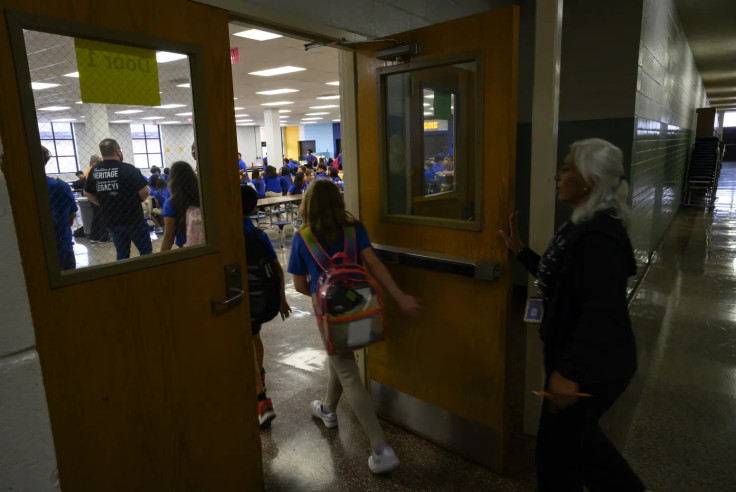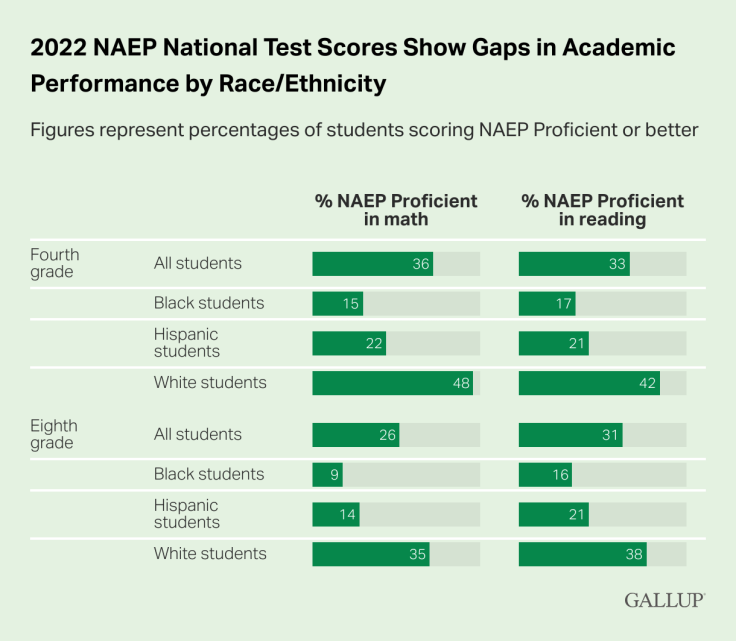
There's a discrepancy between Latino parents' perception of their children's performance in school and what's really going on.
That's the conclusion drawn by a Gallup survey, which showed that while over 85 percent of Latino parents believe their children are performing above average in reading and math, the results are actually much lower.
According to the 2022 National Assessment of Educational Progress (NAEP), also known as "The Nation's Report Card," only 22 percent of fourth grade Hispanics students were scoring proficient or better in math, the figure dropping to 14 in eight grade. In reading, the figure was 21 percent for fourth graders and 21 for eight graders.
It is worth mentioning that this notion was not circumscribed to Latinos. The vast majority of White and Black parents also said they believed their children were performing above average when results showed that, overall, only 36 percent of fourth graders were proficient or better in math and 33 percent in reading. In eight grade, 26 percent were proficient or better in math and 31 percent in reading.

Gallup also highlights that "standardized education tests in the U.S. have faced criticism for their racial and cultural biases, which may exaggerate the perceived learning gap and limit performance-based opportunities for students of color." "Multiple research studies find that tests often disproportionately disadvantage minority students, particularly Black and Hispanic students," it adds.
The discrepancy could affect parents' decision with regards to their children's education, as 56 percent of Hispanic parents said they would "definitely" take action if presented with information that their child was not performing at grade level."
"Hispanic parents report a greater likelihood of taking action in some areas compared with parents of all racial and ethnic backgrounds, particularly accessing free online resources (48 percent vs. 38 percent) and getting an in-school (33 percent vs. 25 percent) or private (24 percent vs. 17 percent) tutor.
"A holistic review of educational progress can help parents better advocate for the academic resources their child needs." Gallup concluded.
The Gallup survey adds to existing literature about the disparities Latino and Black students face in the U.S. In mid-November, a data release by the U.S. Education Department from the 2020-2021 school year showed that students from these demographics encounter hurdles such as limited access to advanced classes, fewer certified teachers, and a scarcity of school counselors. In schools where less than half of the teachers meet state certification requirements, 66% of students are Black or Latino.
The report emphasizes that the presence of certified teachers is crucial for better student outcomes, but a disproportionate number of Black and Latino students attend schools with lower percentages of certified teachers. A similar pattern is observed in the availability of school counselors, with students of color more likely to be in schools equipped with security staff but lacking counselors.
Access to higher-level classes is also disproportionally more challenging for Black and Latino students. The report reveals that these students are significantly less likely to enroll in Advanced Placement (AP) classes, which are known to enhance college prospects. The underrepresentation of Black and Latino students in AP science and math classes is largely unchanged since the 2017-18 school year.
Furthermore, at schools where Black and Latino students represent over 75% of the student body, there is a notable scarcity of advanced courses in math, science, and computer science. Calculus, for instance, is not offered in 35% of these schools compared to only 54% in schools with lower Black and Latino enrollment.
© 2025 Latin Times. All rights reserved. Do not reproduce without permission.





